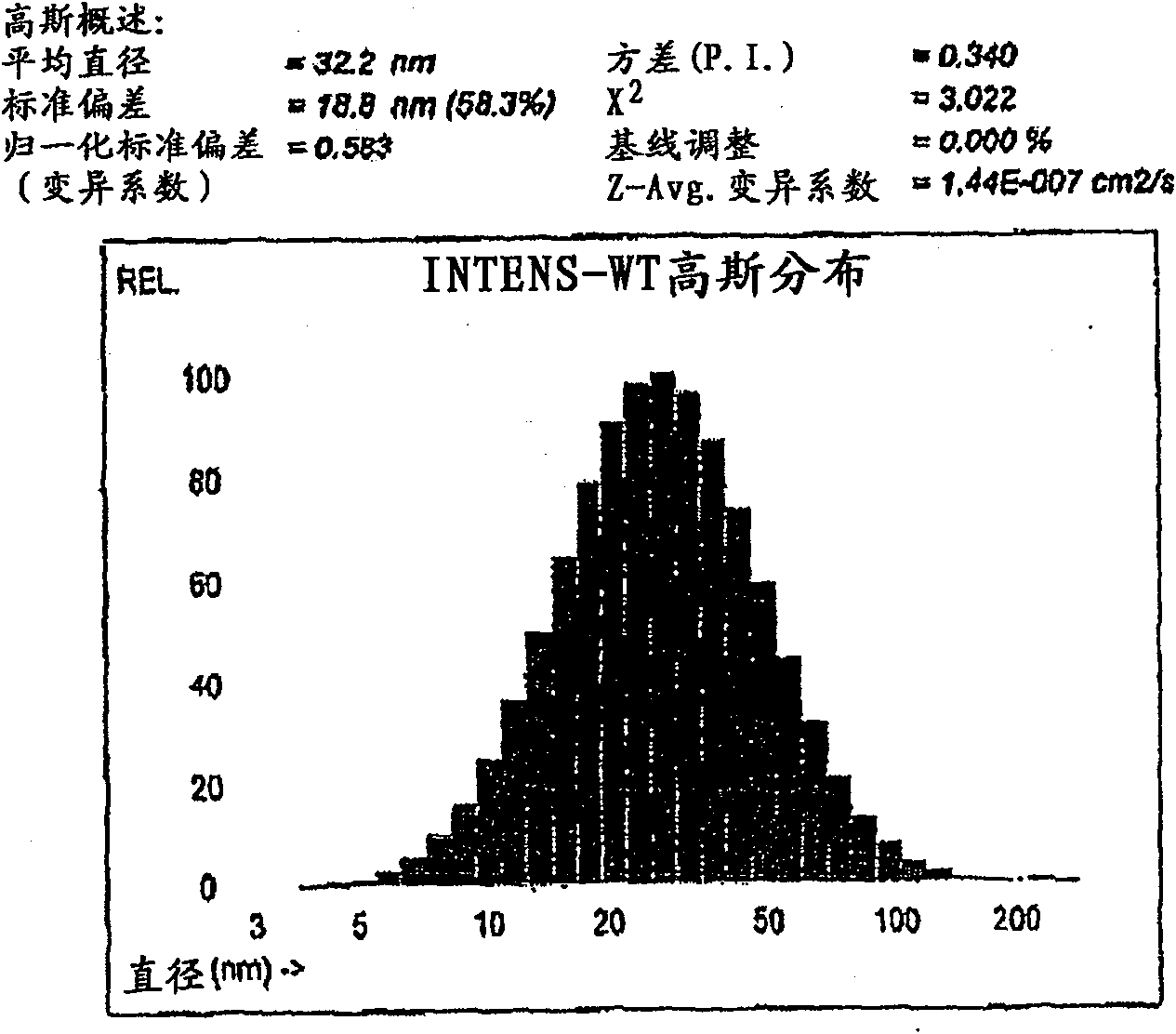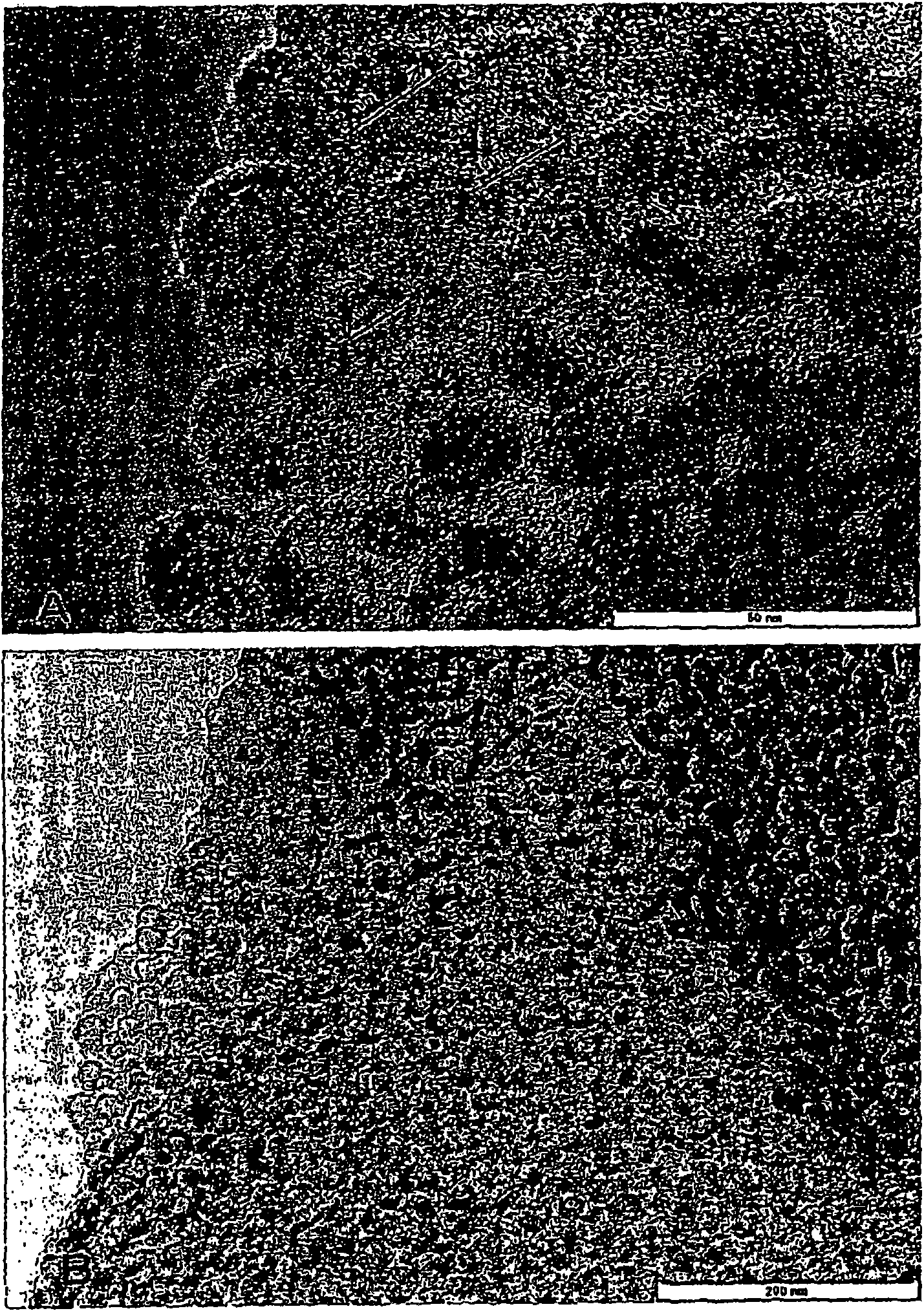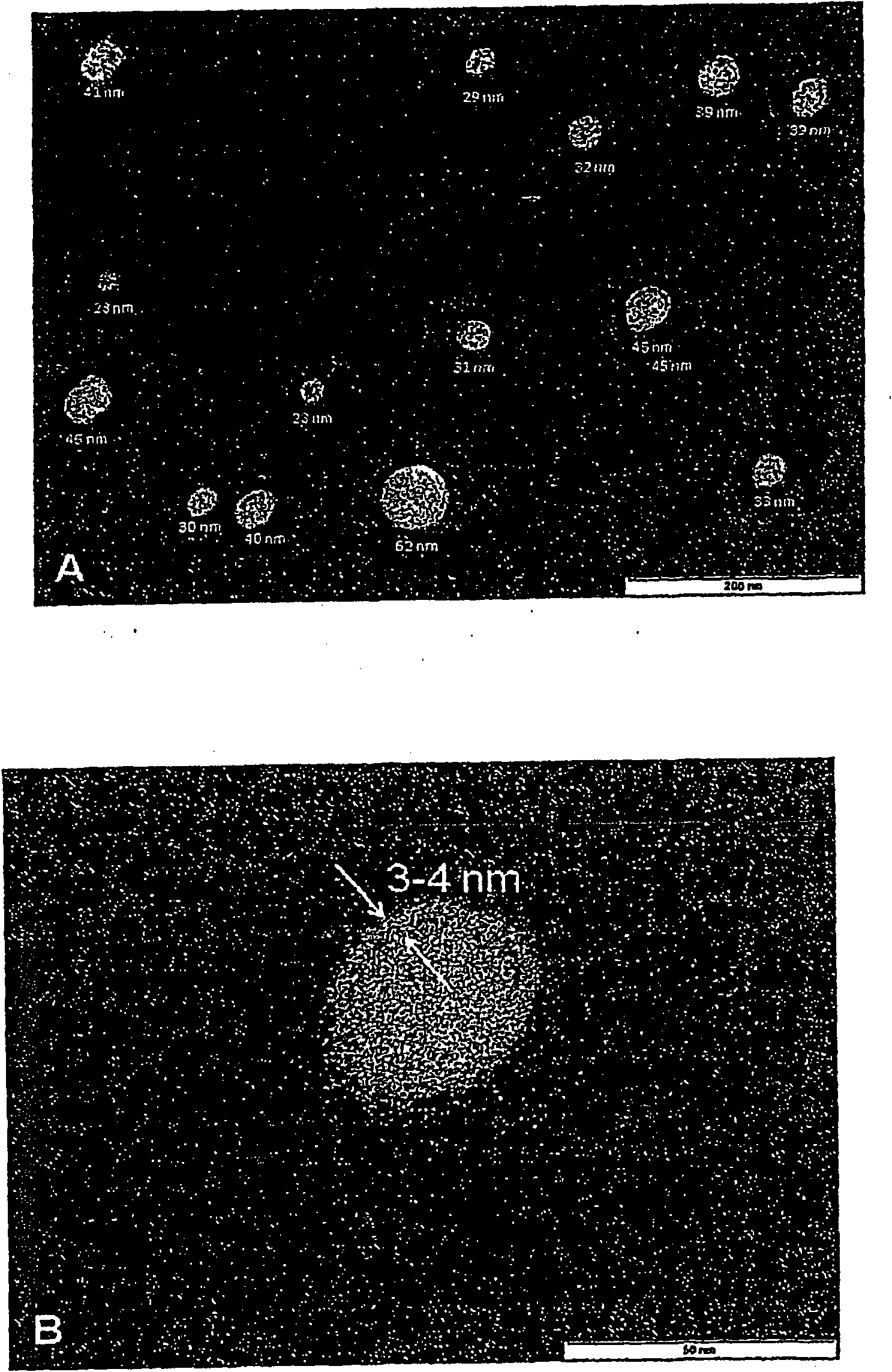Nanoemulsion
A nanoemulsion and active agent technology, applied in the field of treatment of tumor diseases and/or psoriasis, diseases and diseases related to cell proliferation, can solve the problems of reduced contact area, impaired nanoemulsion penetration, and reduced penetration rate
- Summary
- Abstract
- Description
- Claims
- Application Information
AI Technical Summary
Problems solved by technology
Method used
Image
Examples
Embodiment 1
[0097] Embodiment 1: the preparation of nanoemulsion BF200
[0098] The following table gives the qualitative and quantitative composition of nanoemulsion BF200.
[0099] Table 1. Composition of nanoemulsion BF200
[0100] Element
%(w / w)
Function
quality
1.73
Surfactant
>94%
Phosphatidylcholine, for medicine
use, USP
Polysorbate 80
(polyoxyethylene sorbitan monooleate
ester)
3.40
co-surfactant
Ph. Eur.
Caprylic / Capric Triglycerides
3.45
lipid core
Ph. Eur.
Isopropanol
1.42
Ph. Eur.
10mM Phosphate Buffer, pH 6
make up to
100.00
Water for Injection:
Ph.Eur
Disodium Hydrogen Phosphate and Dihydrogen Phosphate
Sodium: Ph. Eur.
[0101] The production method of emulsion BF200 c...
Embodiment 2
[0115] Example 2: Preparation of aminolevulinic acid 1%, 3% and 10% gels and placebo gels
[0116] Qualitative and quantitative compositions of placebo gel and 1%, 3%, 10% aminolevulinic acid gel are given in the table below.
[0117] Table 3. Composition of Placebo Gels
[0118]
[0119] Table 4. Composition of Aminolevulinic Acid 1% Gel
[0120]
[0121] Table 5: Composition of Aminolevulinic Acid 3% Gel
[0122] Element
Amount per gram of gel
Function
quality
Aminolevulinic acid hydrochloride
30.0mg
drug substance
inside
19.625mg
filler
Ph. Eur.
Nanoemulsion BF200
175.0mg
carrier
inside
9.0mg
preservatives
Ph. Eur.
0.7mg
preservatives
Ph. Eur.
0.3mg
preservatives
Ph. Eur.
Water for Injection
765.375mg
Ph. Eur.
[0123]Table 6: Composition o...
Embodiment 3
[0145] Embodiment 3: the particle diameter of nanoemulsion BF-200
[0146] The average particle size of the produced nanoemulsions was less than 100 nm as assessed by Photon Correlation Spectroscopy, PCS (also known as Dynamic Laser Light Scattering, DLS). Furthermore, the nanoemulsions are characterized by a very narrow particle size distribution (see Figure 1 below).
[0147] The nanoemulsions are stable over a wide temperature range, but can be destroyed by freezing and autoclaving. Nanoemulsions are relatively insensitive to changes in pH and ionic strength, and due to their small size, they can be sterilized by filtration through a 0.2 μm filter. Nanoemulsions have the potential to improve the delivery of active substances into the skin, thus enhancing the efficacy of topically applied drugs.
[0148] Nanoemulsion BF-200 was produced using low energy techniques; that is, the preparation of nanoemulsions does not require high shear equipment such as sonicators or high pr...
PUM
| Property | Measurement | Unit |
|---|---|---|
| The average diameter | aaaaa | aaaaa |
| The average diameter | aaaaa | aaaaa |
| The average particle size | aaaaa | aaaaa |
Abstract
Description
Claims
Application Information
 Login to View More
Login to View More - R&D
- Intellectual Property
- Life Sciences
- Materials
- Tech Scout
- Unparalleled Data Quality
- Higher Quality Content
- 60% Fewer Hallucinations
Browse by: Latest US Patents, China's latest patents, Technical Efficacy Thesaurus, Application Domain, Technology Topic, Popular Technical Reports.
© 2025 PatSnap. All rights reserved.Legal|Privacy policy|Modern Slavery Act Transparency Statement|Sitemap|About US| Contact US: help@patsnap.com



